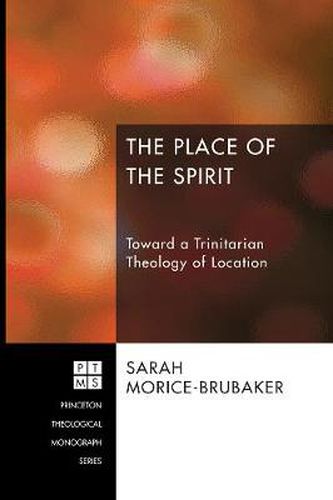Readings Newsletter
Become a Readings Member to make your shopping experience even easier.
Sign in or sign up for free!
You’re not far away from qualifying for FREE standard shipping within Australia
You’ve qualified for FREE standard shipping within Australia
The cart is loading…






This title is printed to order. This book may have been self-published. If so, we cannot guarantee the quality of the content. In the main most books will have gone through the editing process however some may not. We therefore suggest that you be aware of this before ordering this book. If in doubt check either the author or publisher’s details as we are unable to accept any returns unless they are faulty. Please contact us if you have any questions.
Is there any way to talk theologically about the Trinity and place? What might the placedness of creation have to do with God’s triunity? In The Place of the Spirit, Sarah Morice-Brubaker considers how anxieties about place have influenced Trinitarian theology–both what it is asked to do and the language in which it is expressed.When one is nervous about collapsing God into created horizons, she suggests, one is apt to come up with a model of trinity that refuses place. Distance becomes a primary way of situating the divine persons in relation to each other. Conversely, those theologians who wish to avoid a too-remote God likewise recruit Trinitarian language to suit that purpose. They, too, give that language a placial gloss, expressing triunity in terms of coinherence and mutual indwelling.And yet, suggests Morice-Brubaker, the question, What is place, and how can one talk about God and place? is underdetermined within much contemporary Trinitarian thought. Thankfully, this question has received full-on attention in other areas of ethics, philosophy, and systematic theology. This book calls for Trinitarian thought to avail itself of those insights and offers some ways in which it may do so.
$9.00 standard shipping within Australia
FREE standard shipping within Australia for orders over $100.00
Express & International shipping calculated at checkout
This title is printed to order. This book may have been self-published. If so, we cannot guarantee the quality of the content. In the main most books will have gone through the editing process however some may not. We therefore suggest that you be aware of this before ordering this book. If in doubt check either the author or publisher’s details as we are unable to accept any returns unless they are faulty. Please contact us if you have any questions.
Is there any way to talk theologically about the Trinity and place? What might the placedness of creation have to do with God’s triunity? In The Place of the Spirit, Sarah Morice-Brubaker considers how anxieties about place have influenced Trinitarian theology–both what it is asked to do and the language in which it is expressed.When one is nervous about collapsing God into created horizons, she suggests, one is apt to come up with a model of trinity that refuses place. Distance becomes a primary way of situating the divine persons in relation to each other. Conversely, those theologians who wish to avoid a too-remote God likewise recruit Trinitarian language to suit that purpose. They, too, give that language a placial gloss, expressing triunity in terms of coinherence and mutual indwelling.And yet, suggests Morice-Brubaker, the question, What is place, and how can one talk about God and place? is underdetermined within much contemporary Trinitarian thought. Thankfully, this question has received full-on attention in other areas of ethics, philosophy, and systematic theology. This book calls for Trinitarian thought to avail itself of those insights and offers some ways in which it may do so.